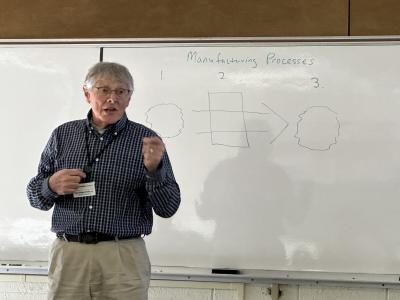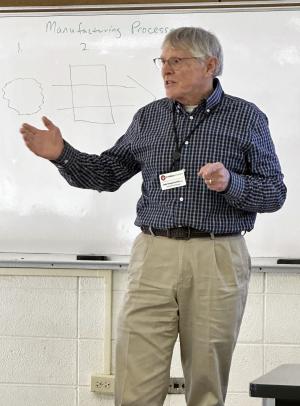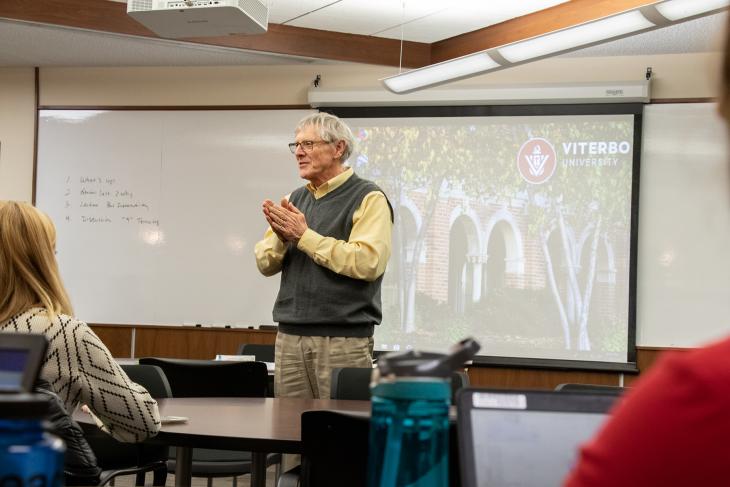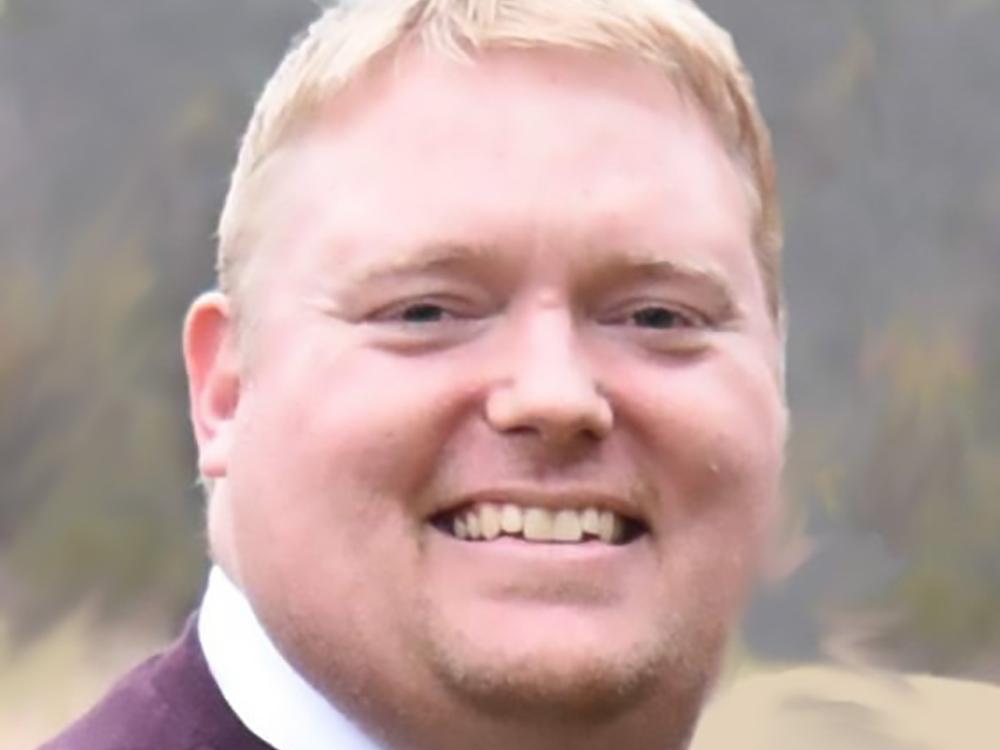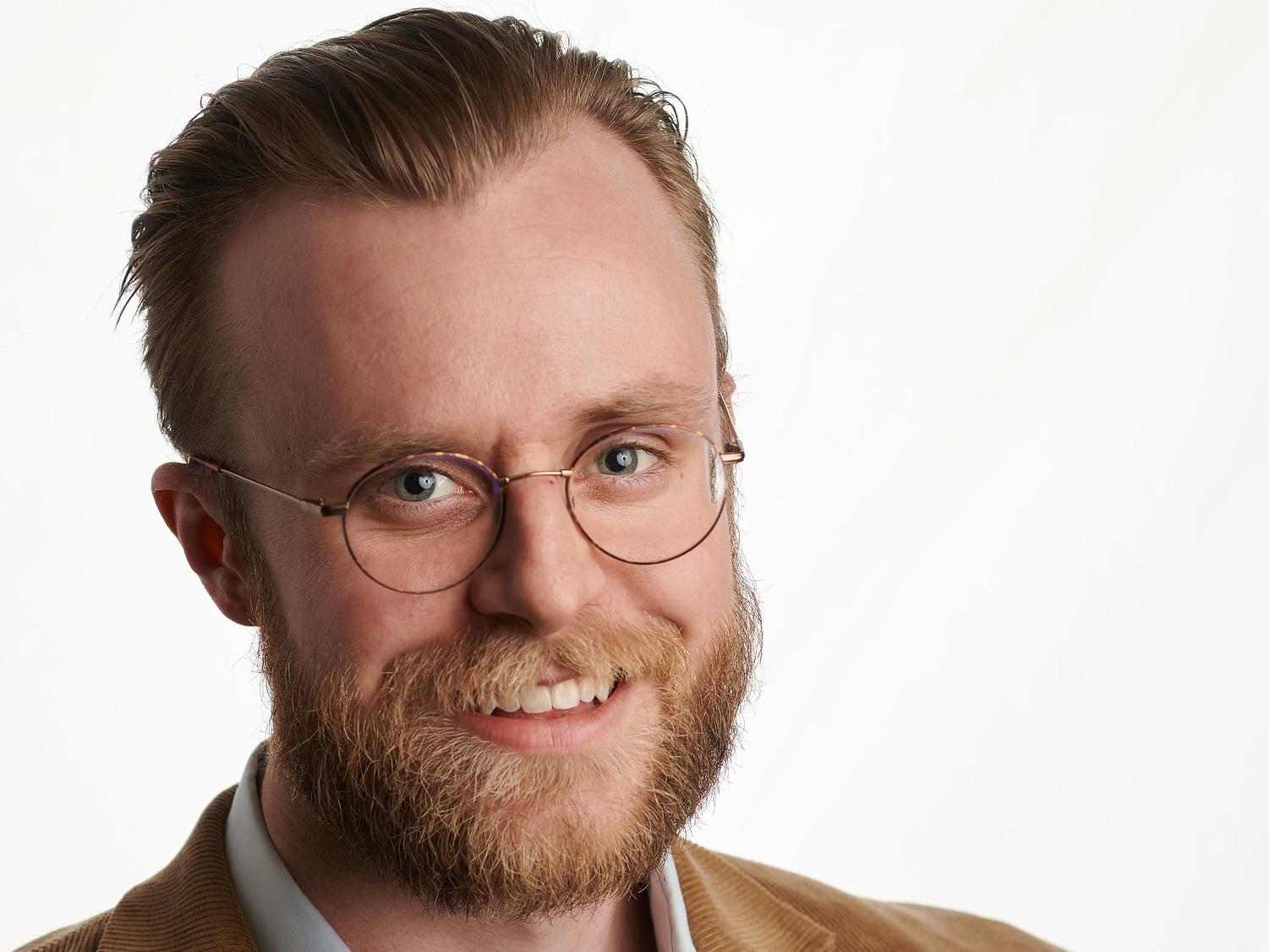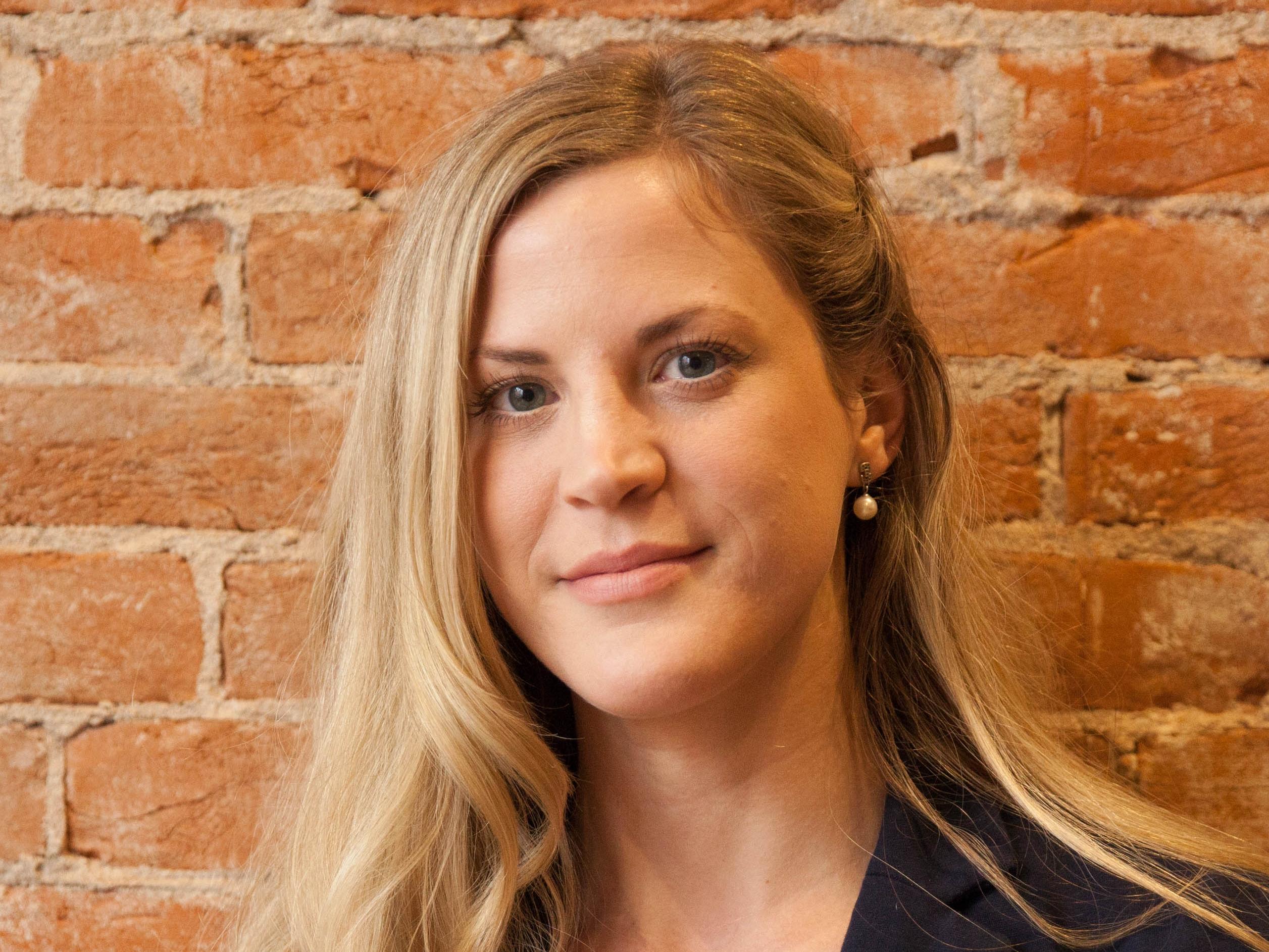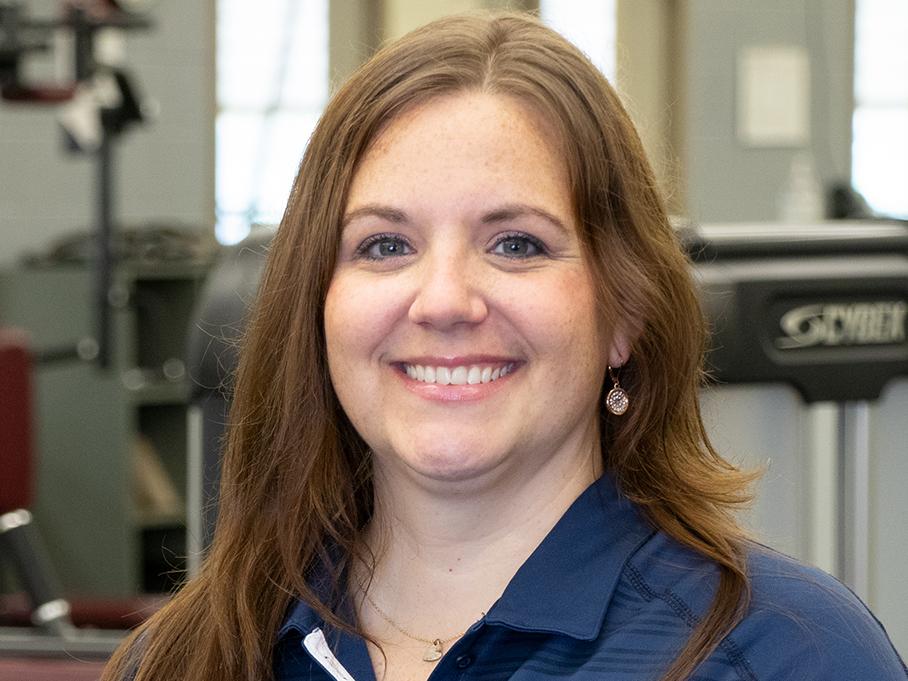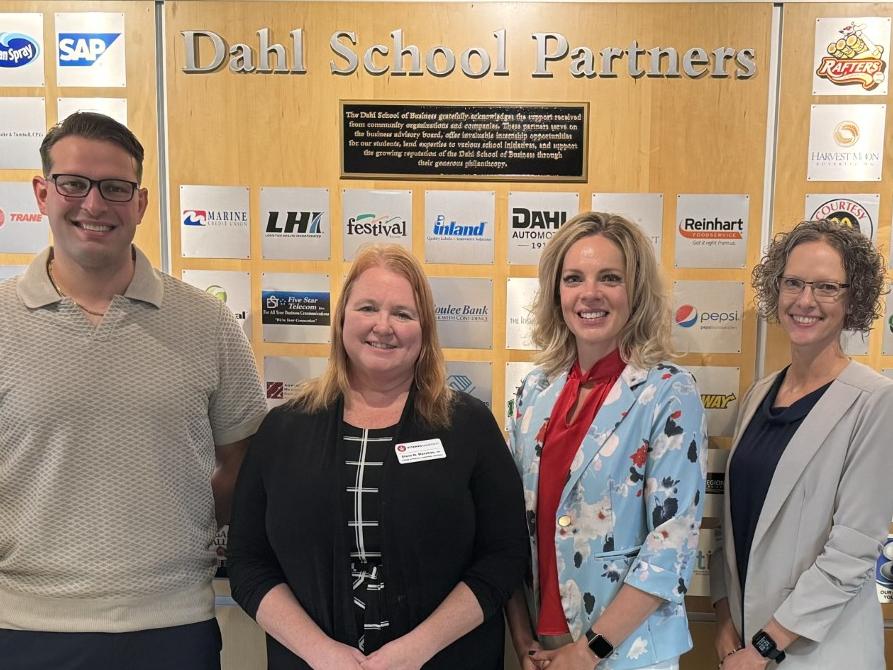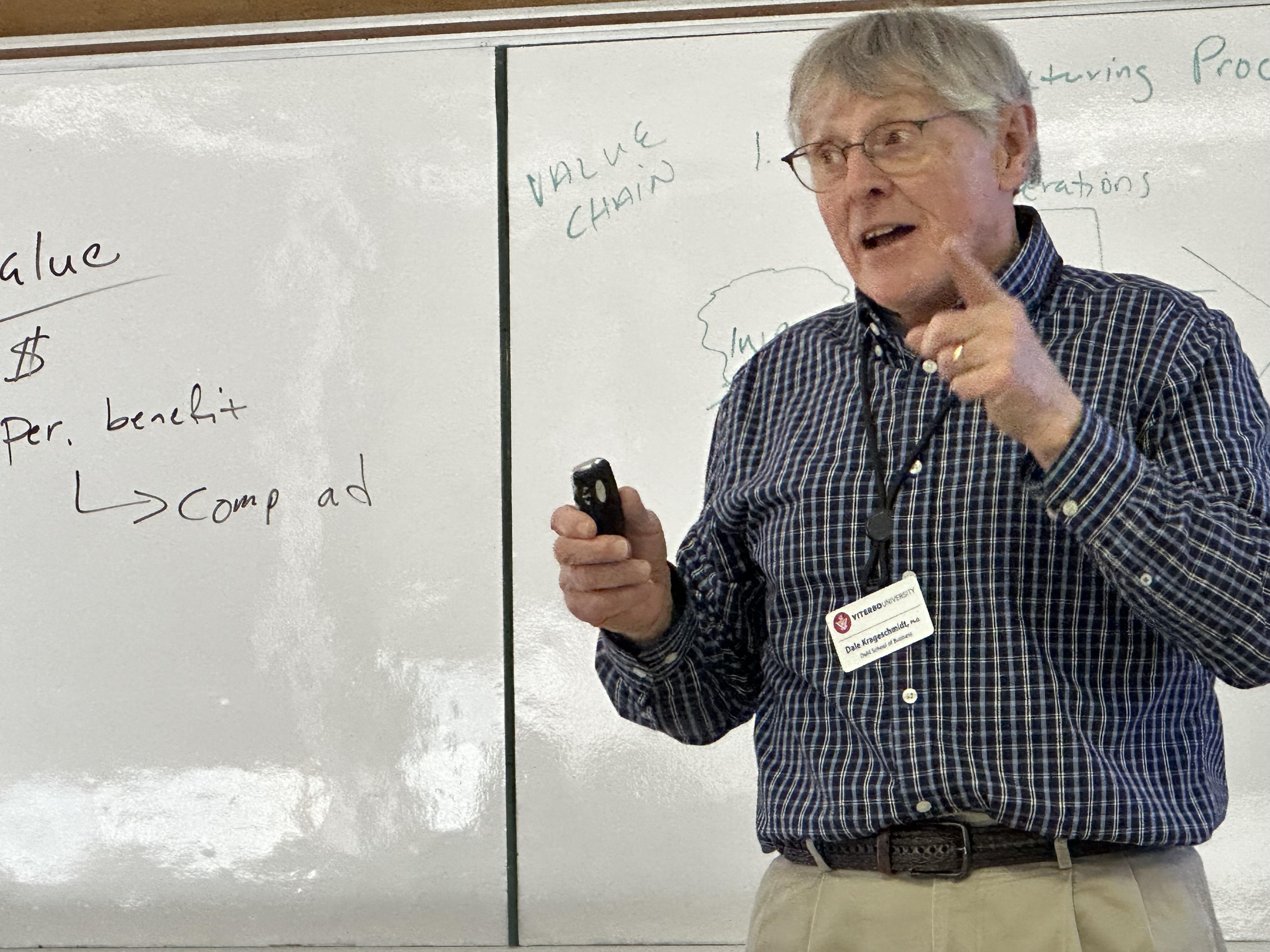
From engineering consulting to health care and now education, Dale Krageschmidt, PhD, has a plethora of talents that have contributed to his educational approach. A natural storyteller, Krageschmidt is an associate professor in the Dahl School of Business, and his work in numerous industries has helped him effectively lead classrooms, presentations, and companies.
Krageschmidt is the coordinator of the MBA in health care leadership program at Viterbo, and he also teaches undergraduate classes.
Krageschmidt grew up in Washington during the 1960s and ’70s, and he attended Washington State University for his undergraduate studies. He had interests spanning across the sciences but was unsure of his career goals.
“I didn’t know if I wanted to be a chemist or not,” said Krageschmidt. “I felt like I was an outdoors kind of a guy.”
So, for his first two years, he went into forestry, but he found another passion while working at a large animal veterinarian practice. Krageschmidt switched his major to animal sciences and was on the six-year track for graduation.
However, he was talked out of veterinary work and he switched to chemistry before eventually switching back to biology, taking a nontraditional college route. After Washington State, he went to Whitworth College for a chemistry degree, and he concurrently received his master’s degree in management and leadership. Since he had taken so many engineering credits, he found his first job as a chemical engineer at Kaiser Aluminum.
He stayed at Kaiser for eight years and did consulting for them for seven more. During that time, Krageschmidt had the opportunity to be an adjunct professor at a few universities, which motivated him to go back to school for his PhD. He returned to school, going to Columbia Southern University for a PhD and a master’s degree in environmental engineering. Later in his life, Krageschmidt received post-docs from the University of Florida and University of Minnesota in clinical toxicology and public health, respectively.
In 1992, he started Krageschmidt Consulting, which conducted business in several countries including Japan and South Korea. His business in Japan started by chance. “In walks this guy from Japan and he says, ‘We’re in trouble because we built this plant for Les Schwab, but we didn’t get the right permits. Can you help us?’” Krageschmidt recalled. He took the job and traveled to Japan, testing for how to optimize energy efficiency at the plant.
The company had three plants, two in Japan and another in Seoul, South Korea. Krageschmidt was there from 1989 to 1992, and it was a great experience. “I encourage anybody that gets a chance to do some international business to do it,” he said. “It was a lifetime experience.”
Krageschmidt began working in both education and health care after his consulting work. He became an instructor of statistics, chemistry, and biochemistry at Lake Superior College in 1995, and was an associate professor at the University of Minnesota Duluth from 1997 to 2006. In 2006, he began working for Mayo Clinic as an industrial hygienist.
He has worked on projects ranging from planning safe transport of neonatal patients in helicopters to research on water system optimization. Krageschmidt feels that it has been the most valuable work he’s done.
“I’d say my most rewarding work was research that I got to do that helped with public health and health care, but my most memorable would be going internationally,” he said. During his time with Mayo, he came to La Crosse to be the director of safety and security.
Because of his research work, Krageschmidt has become a significant voice in COVID-19 circles in the region and has been asked to speak at numerous events.
“There’s a couple of things that people think that I’m an expert in,” said Krageschmidt. “One of them is long COVID.” He had first studied SARS in 2002 when he was part of the Environmental Health Advisory Board at IBM, which had a severe outbreak at one of its factories in China early in the epidemic. The board noticed that some people were not getting better, but they did not think to research it at the time. When MERS broke out in 2010, they noticed the same effects and were able to predict long COVID-19 effects before they happened.
He has been a podium speaker at two of the last three National Public Health Association meetings, as well as several local meetings. His other current work is focusing on Rochester’s Mayo Clinic water system, and since the hospital functions as its own small city, any findings from Krageschmidt and his team can have a massive impact on business functions. They have collected the data over almost a decade, and the analysis is now beginning.
In 2014, Krageschmidt came to Viterbo to work as an associate professor and coordinator of the MBA in health care leadership program. He began as an adjunct professor teaching statistics at the university before being offered the coordinator position.
“Viterbo is a great place to teach. We get to know each other really well. It’s very personal,” he said. “I really love teaching and I really love working with young students. I’ve been lucky, I’ve lived a long time and I’ve experienced a lot of things, and I like to just share my experiences.”

